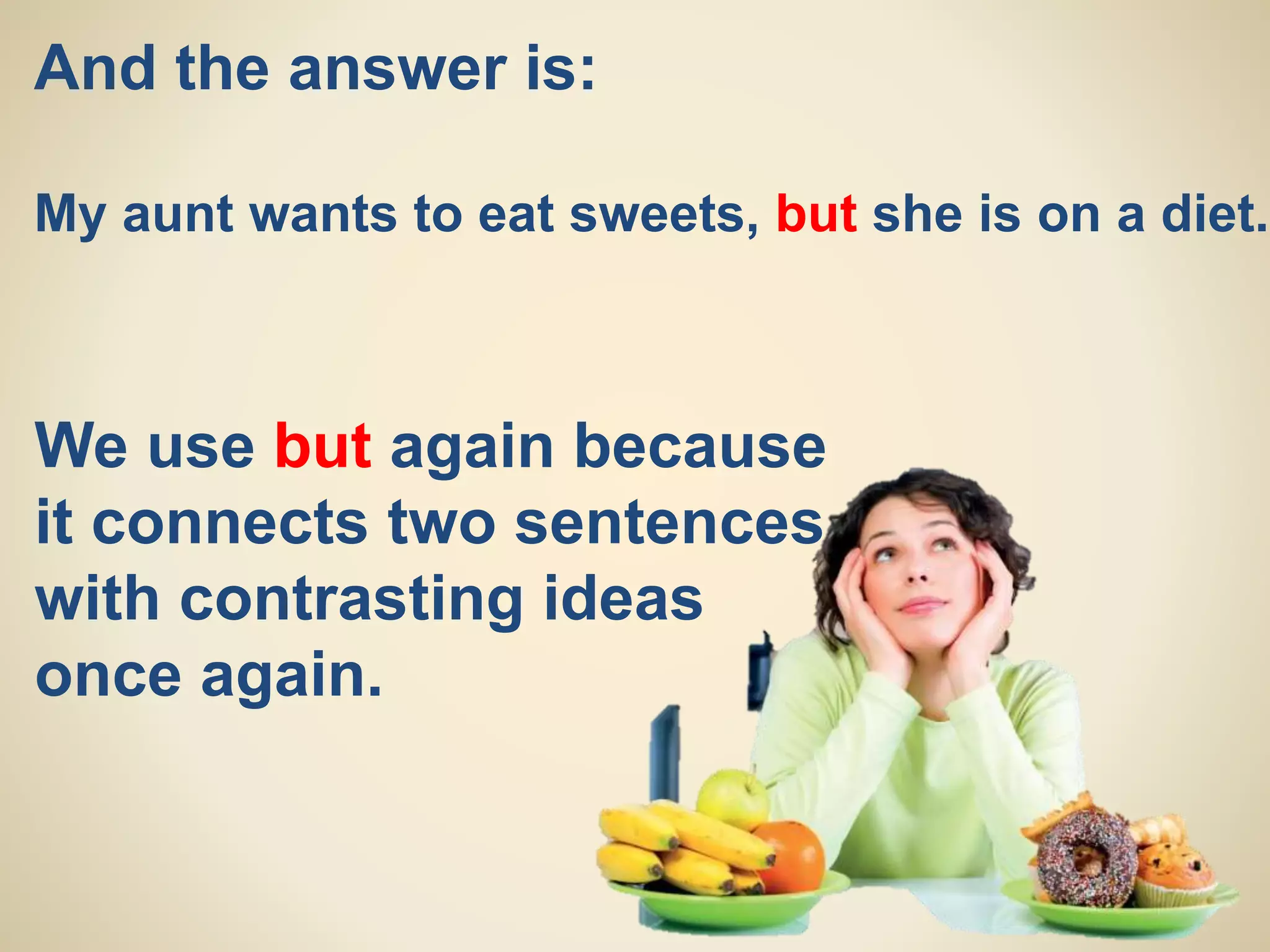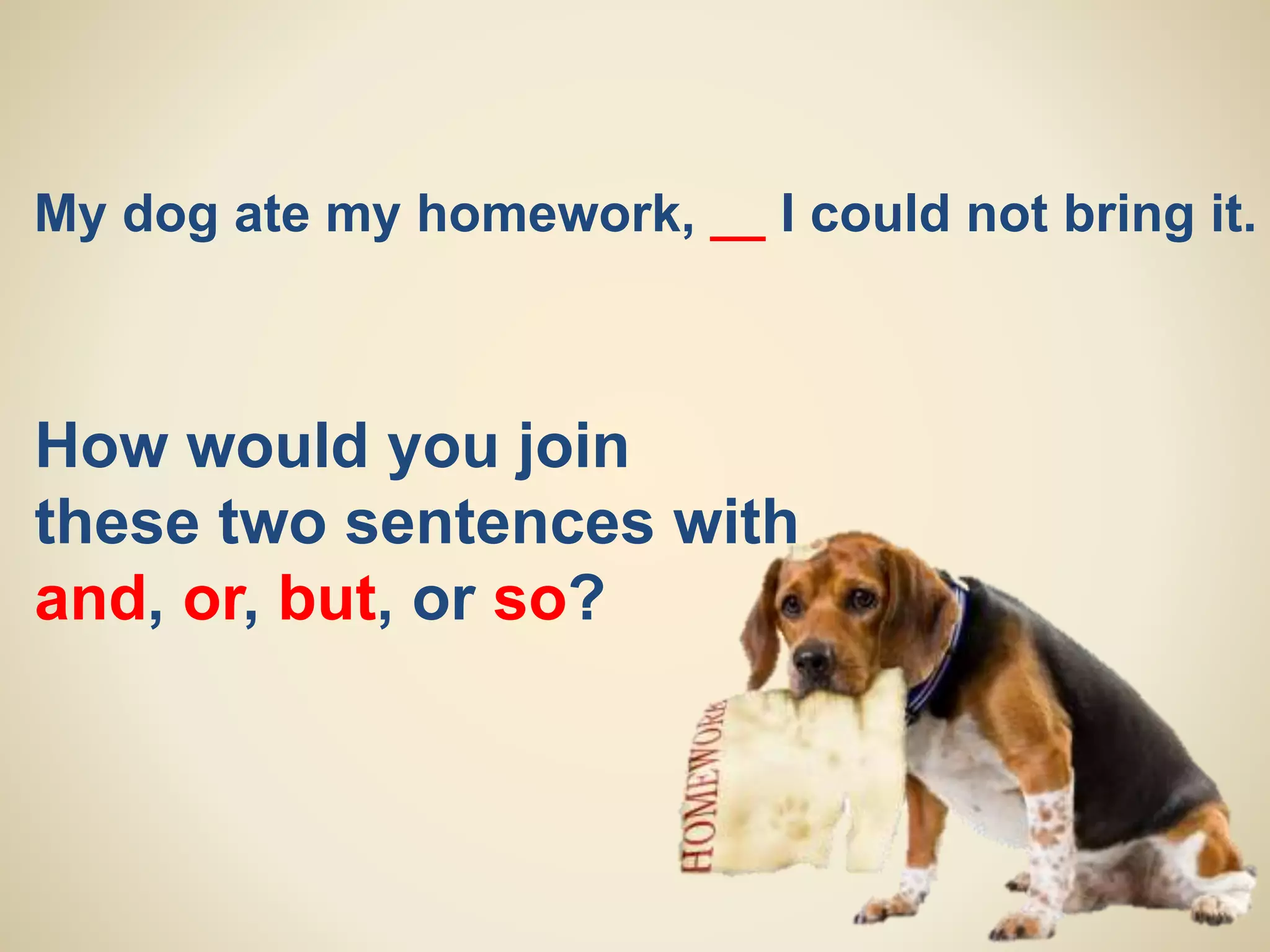The document discusses how to join sentences using connecting words like and, but, or, and so. It provides examples of joining two sentences and identifies which connecting word to use based on whether the ideas are additive, contrasting, offering a choice, or showing consequence. The connecting words and, but, or, and so are used to appropriately join sentences based on their meaning.

















